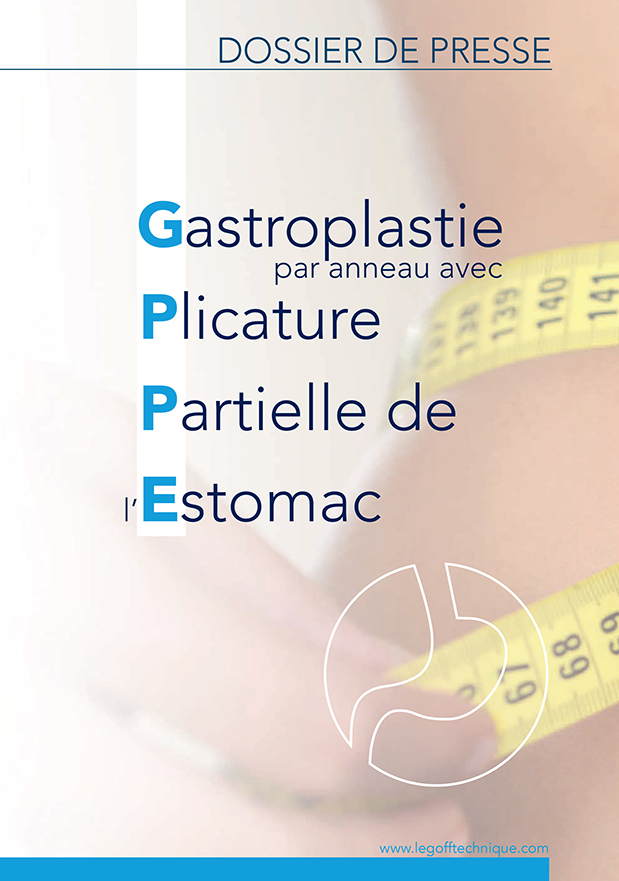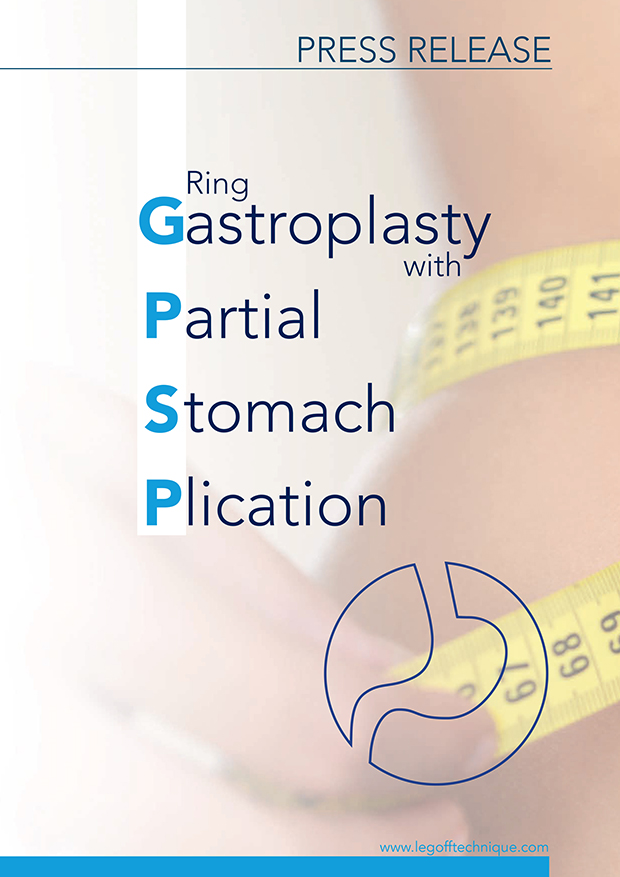Obesity surgery doomed to fail without treatment of the psychological causes
Dr. Le Goff - Obesity surgeon in Paris
le goff technique
Obesity surgery doomed to fail without treatment of the psychological causes
Following surgery, psychological care is essential to prevent relapse
Paris, 23 May 2016 – Surgical treatment for severe or morbid obesity is unlikely to be successful in the medium and long term, if the psychological causes, 80%-90% responsible for the disease are not also treated, says Dr Jean-Yves Le Goff, visceral surgeon specialising in obesity surgery, at the occasion of the European Obesity Day.
“Severe or morbid obesity is an addiction, the causes of which are 80%-90% psychological. These psychological factors need to be treated, at the same time as a surgical procedure, otherwise there will be weight gain, complications and repeat surgery. More than 20 years of experience in treating obese patients surgically has convinced me that if these psychological aspects are not resolved, any operation, whatever the method, is bound to fail in the medium and long term”, explains Dr Jean-Yves Le Goff, visceral surgeon, who has developed an innovative method of obesity surgery, named the “Le Goff Technique”.
Many scientists have underlined the nature of addiction in the development of obesity, which is similar to drug addiction to eating. Significant unresolved psychological issues are always found: stress, grief, divorce, abandon, sexual abuse (molestation, incest, rape). Similarly, 66% of obese patients have suffered childhood abuse (1). Depression may also be a key factor: an obese person, in a depression, eats five times more than a person of normal weight (2).
The other causes of obesity are estimated to be 5% of genetic origin and 5 to 10% ethnocultural (for example an Inuit woman will eat more food per day than a person working at a computer), when endocrine factors have first been eliminated.
Cocaine addiction is not treated by removing the nose
e operation. “Unresolved grief, incest or rape, etc. is not treated by removing part of the stomach (sleeve) or by doing a gastric bypass. No one would treat a cocaine addict by removing their nose to prevent them from sniffing it! Or remove the fingers of a smoker to prevent them smoking”, states Dr Jean-Yves Le Goff. “This is why we should be as conservative as possible in operations so as not to add problems to the existing obesity, i.e. irreversible mutilating surgery and nutritional deficiencies (vitamins B1, B12, D, iron, calcium, etc.)”.
The “Le Goff Technique” consists of gastric banding with fixing of the band and partial gastric plicature, associated with strong psychological care. It has allowed the morbidly obese to lose on average 62% of their excess weight in five years, and as much as 70% to 100% over a period of 1 to 20 years. Unlike sleeve or bypass surgery, it is a restrictive method but which is entirely reversible, adjustable and non-invasive for surgically treating morbid obesity.
“I see numerous patients who regret having had a sleeve or bypass operation as their quality of life is worse, and ultimately, they have regained weight. With my method, there are no vitamin deficiencies, and therefore no supplements to take for life, essential and appreciable for the patient and economically for them and for society. Patients enter a virtuous circle and are very dynamic”, explains Dr Le Goff.
The number of obesity operations was 47,000 in 2014, a constantly growing number. However, every year, these operations are shown to be ineffective in the medium to long-term (40 to 50 % of patients regain weight), or lead to a number of post-operative deaths in the first 30 days (113 deaths in 2011 for sleeve and bypass surgery) and very high complications and repeat surgery.

Follow-up, an essential factor of success
One of the reasons the surgery fails is the insufficient psychological care before and after the operation, and particularly the quality of the care. As the National Academy of Surgery and Association of the Obese (CNAO) recently underlined, follow-up for operated obese patients is all but forgotten in the treatment.
The “Le Goff Technique” is combined with close psychological care and the signing of a treatment agreement with the medical team. It enables patients to start to deal with the psychological issues. “It’s a start, a springboard, which never would have been used in a diet, to overcoming impulses and thinking about eating less. Pre- and post-operative care is just as important as the surgery itself: they are “two legs on the same body to achieve the objective of weight loss”, underlines Dr Le Goff.
In the Le Goff technique, care is facilitated by the method use as by adjusting the diameter of the band using a sub-abdominal unit, at least one consultation per year is required. “The surgeon performs the inflations and deflations, and sees the patient again. Few patients are forgotten. On this occasion, the montage is assessed. The operation of the band is a reflection of the patient’s mental state. Depending on the patients’ needs, the surgeon can direct them to a psychiatrist-psychoanalyst, a nutritionist or prescribe sports”.
Obese patients are actors in their weight loss and not just spectators, which is more the case in sleeve and bypass surgery, as the patient usually relies on these procedures to lose weight passively.
About Dr Jean-Yves Le Goff
Dr Jean-Yves Le Goff is a laparoscopic digestive surgeon. Specialist in obesity surgery, he works at the Trocadéro clinic and at the Seine Saint-Denis (Le Blanc-Mesnil) private hospital. Formerly assistant clinical manager and resident in Paris hospitals, he is the founder and former manager of the endoscopic surgery unit at Bichat Hospital (1988-97). He is also a founding member of the French Society for Endoscopic Surgery (SFCE), the European Association for Endoscopic Surgery (EAES) and the Foundation for the Development of Laparoscopic Surgery (FDCL). He is also a member of the French Society for Obesity Surgery (SOFCO).
[1] Simon et al. (2008) Association between obesity and depression in middle-aged women. Gen Hosp Psychiatry ; 30(1): 32R39.
[2] Murphy J. M., Horton N. J., Burke J. D., Monson R. R., Laird N. M., Lesage A., Sobol A. M. (2009). Obesity and Weight Gain in Relation to Depression: Findings from the Stirling County Study. Int J Obes (Lond). March ; 33(3): 335R341



